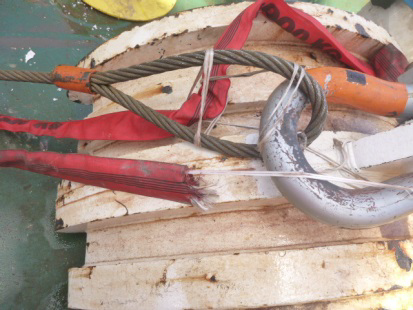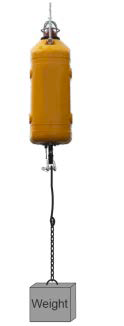Two near misses: loads fell from height to deck
What happened?
During two recent lifting operations, loads fell from height to the deck. In one case the rigging crew were close to where the load landed – the incident could easily have had fatal results. No one was hurt in either incident.


What lessons were learnt?
- Investigation into both incidents showed that unapproved changes had been made to the rigging. This was highlighted as a major contributing factor to the loads being dropped.
- It was found that the Management of Change (MOC) process had not been followed and that the crews had a lack of awareness regarding the application of the MOC process and when it should be applied.
- The company’s MOC process was not followed; the changes were made without engineering reviews and subsequent risk assessments.
- If the MOC process had been applied, then the subsequent checks could have prevented both incidents.
What actions were taken?
- Conduct a review to ensure that there are no unauthorised modifications to rigging or equipment (welding on ROV hooks for example);
- Equipment found to have been modified without engineering review or where the MOC process has not been followed, should be quarantined and not used until the MOC process and a risk assessment can be completed and approved;
- Particular care should be taken to ensure that modifications do not introduce further new hazards to the operations;
- Ensure that the MOC process is fully understood and applied across all worksites.
Members may wish to review the following incidents:
- Near-miss: Modification of machinery
- Welding of shackles[“in spite of clear work instructions and procedures to the contrary, shackles and hooks at the worksite were being regularly modified by welding”]
- Dangerous occurrence involving a mobile crane [overload protection mechanism on the crane had been deactivated].
Safety Event
Published: 21 September 2017
Download: IMCA SF 23/17
IMCA Safety Flashes
Submit a Report
IMCA Safety Flashes summarise key safety matters and incidents, allowing lessons to be more easily learnt for the benefit of all. The effectiveness of the IMCA Safety Flash system depends on Members sharing information and so avoiding repeat incidents. Please consider adding [email protected] to your internal distribution list for safety alerts or manually submitting information on incidents you consider may be relevant. All information is anonymised or sanitised, as appropriate.
IMCA’s store terms and conditions (https://www.imca-int.com/legal-notices/terms/) apply to all downloads from IMCA’s website, including this document.
IMCA makes every effort to ensure the accuracy and reliability of the data contained in the documents it publishes, but IMCA shall not be liable for any guidance and/or recommendation and/or statement herein contained. The information contained in this document does not fulfil or replace any individual’s or Member's legal, regulatory or other duties or obligations in respect of their operations. Individuals and Members remain solely responsible for the safe, lawful and proper conduct of their operations.
